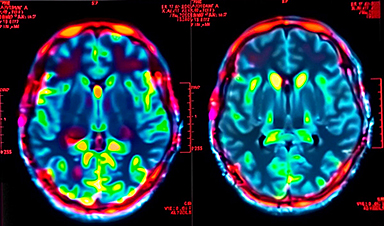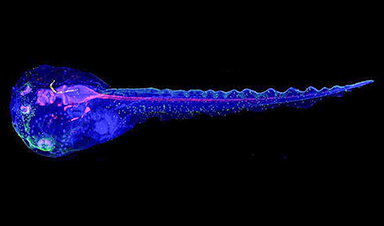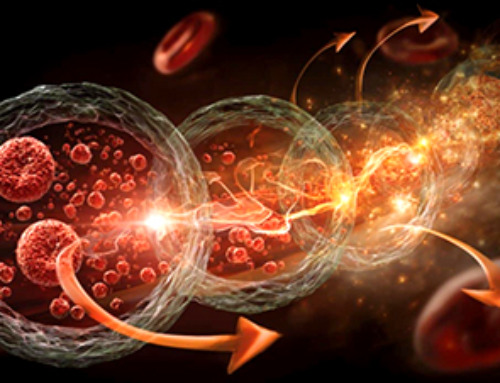A massive new study sheds light on how cannabis affects the brain, particularly during cognitive tasks.
Researchers analyzed over 1,000 young adults and found that both heavy lifetime use and recent cannabis consumption significantly reduced brain activity during working memory tasks. This impairment was linked to worse performance on tasks requiring focus, problem-solving, and instruction-following. Brain imaging revealed that key regions responsible for decision-making and attention were affected.
Cannabis Use and Brain Function: A Groundbreaking Study
A new study published in JAMA Network Open examines how both recent and long-term cannabis use affects brain function during cognitive tasks.
As the largest study of its kind, researchers analyzed over 1,000 young adults aged 22 to 36 using brain imaging technology. They found that 63% of heavy lifetime cannabis users showed reduced brain activity during a working memory task, with a similar impact seen in 68% of recent users.
Reduced Brain Activity and Working Memory Impairment
This decrease in brain activity was linked to poorer performance on working memory — a crucial function that helps people retain and use information for tasks. For instance, working memory enables someone to follow instructions, mentally visualize concepts, or solve problems like math equations.
“As cannabis use continues to grow globally, studying its effects on human health has become increasingly important. By doing so, we can provide a well-rounded understanding of both the benefits and risks of cannabis use, empowering people to make informed decisions and fully comprehend the potential consequences,” said the study’s first author Joshua Gowin, PhD, assistant professor of radiology at the University of Colorado School of Medicine on the University of Colorado Anschutz Medical Campus.
In the study, heavy users are considered young adults who’ve used cannabis more than 1000 times over their lifetime. Whereas, using 10 to 999 times was considered a moderate user, and less than 10 times was considered a nonuser.
MRI Scans Reveal Cannabis’ Impact on Brain Function
The researchers studied the neural response of participants during a magnetic resonance imaging (MRI) session and gave them seven cognitive tasks to complete. The tasks tested working memory, reward, emotion, language, motor skills – such as tapping a finger to map brain control, relational assessment and theory of mind.
The researchers found that cannabis had a statistically significant effect on brain function during working memory tasks, meaning the observed impact is very unlikely to be due to random chance. This effect was seen in both recent and lifetime cannabis users. The impact was less significant for the other tasks.
“We applied the highest standards to our research, setting rigorous thresholds for statistical significance across all seven cognitive function tests. To minimize the risk of false positives, we employed false discovery rate (FDR) correction. While some of the other tasks indicated potential cognitive impairment, only the working memory task showed a statistically significant impact,” adds Gowin.
Key Brain Regions Affected by Heavy Cannabis Use
During working memory tasks, the researchers found heavy cannabis use appeared to reduce brain activity in certain areas of the brain (dorsolateral prefrontal cortex, dorsomedial prefrontal cortex, and anterior insula). These regions of the brain are involved in important cognitive functions such as decision-making, memory, attention, and emotional processing.
However, Gowin mentions their research also suggests that abstaining from using cannabis before doing a cognitive task could help to improve performance. “People need to be aware of their relationship with cannabis since abstaining cold turkey could disrupt their cognition as well. For example, heavy users may need to be more cautious,” Gowin says.
Unanswered Questions: The Future of Cannabis Research
He adds, “There are a lot of questions we still need answers to regarding how cannabis impacts the brain. Large, long-term studies are needed next to understand whether cannabis use directly changes brain function, how long these effects last, and the impact on different age groups.”
Reference: “Brain Function Outcomes of Recent and Lifetime Cannabis Use” by Joshua L. Gowin, Jarrod M. Ellingson, Hollis C. Karoly, Peter Manza, J. Megan Ross, Matthew E. Sloan, Jody L. Tanabe and Nora D. Volkow, 28 January 2025, JAMA Network Open.
DOI: 10.1001/jamanetworkopen.2024.57069
News
AI matches doctors in mapping lung tumors for radiation therapy
In radiation therapy, precision can save lives. Oncologists must carefully map the size and location of a tumor before delivering high-dose radiation to destroy cancer cells while sparing healthy tissue. But this process, called [...]
Scientists Finally “See” Key Protein That Controls Inflammation
Researchers used advanced microscopy to uncover important protein structures. For the first time, two important protein structures in the human body are being visualized, thanks in part to cutting-edge technology at the University of [...]
AI tool detects 9 types of dementia from a single brain scan
Mayo Clinic researchers have developed a new artificial intelligence (AI) tool that helps clinicians identify brain activity patterns linked to nine types of dementia, including Alzheimer's disease, using a single, widely available scan—a transformative [...]
Is plastic packaging putting more than just food on your plate?
New research reveals that common food packaging and utensils can shed microscopic plastics into our food, prompting urgent calls for stricter testing and updated regulations to protect public health. Beyond microplastics: The analysis intentionally [...]
Aging Spreads Through the Bloodstream
Summary: New research reveals that aging isn’t just a local cellular process—it can spread throughout the body via the bloodstream. A redox-sensitive protein called ReHMGB1, secreted by senescent cells, was found to trigger aging features [...]
AI and nanomedicine find rare biomarkers for prostrate cancer and atherosclerosis
Imagine a stadium packed with 75,000 fans, all wearing green and white jerseys—except one person in a solid green shirt. Finding that person would be tough. That's how hard it is for scientists to [...]
Are Pesticides Breeding the Next Pandemic? Experts Warn of Fungal Superbugs
Fungicides used in agriculture have been linked to an increase in resistance to antifungal drugs in both humans and animals. Fungal infections are on the rise, and two UC Davis infectious disease experts, Dr. George Thompson [...]
Scientists Crack the 500-Million-Year-Old Code That Controls Your Immune System
A collaborative team from Penn Medicine and Penn Engineering has uncovered the mathematical principles behind a 500-million-year-old protein network that determines whether foreign materials are recognized as friend or foe. How does your body [...]
Team discovers how tiny parts of cells stay organized, new insights for blocking cancer growth
A team of international researchers led by scientists at City of Hope provides the most thorough account yet of an elusive target for cancer treatment. Published in Science Advances, the study suggests a complex signaling [...]
Nanomaterials in Ophthalmology: A Review
Eye diseases are becoming more common. In 2020, over 250 million people had mild vision problems, and 295 million experienced moderate to severe ocular conditions. In response, researchers are turning to nanotechnology and nanomaterials—tools that are transforming [...]
Natural Plant Extract Removes up to 90% of Microplastics From Water
Researchers found that natural polymers derived from okra and fenugreek are highly effective at removing microplastics from water. The same sticky substances that make okra slimy and give fenugreek its gel-like texture could help [...]
Instant coffee may damage your eyes, genetic study finds
A new genetic study shows that just one extra cup of instant coffee a day could significantly increase your risk of developing dry AMD, shedding fresh light on how our daily beverage choices may [...]
Nanoneedle patch offers painless alternative to traditional cancer biopsies
A patch containing tens of millions of microscopic nanoneedles could soon replace traditional biopsies, scientists have found. The patch offers a painless and less invasive alternative for millions of patients worldwide who undergo biopsies [...]
Small antibodies provide broad protection against SARS coronaviruses
Scientists have discovered a unique class of small antibodies that are strongly protective against a wide range of SARS coronaviruses, including SARS-CoV-1 and numerous early and recent SARS-CoV-2 variants. The unique antibodies target an [...]
Controlling This One Molecule Could Halt Alzheimer’s in Its Tracks
New research identifies the immune molecule STING as a driver of brain damage in Alzheimer’s. A new approach to Alzheimer’s disease has led to an exciting discovery that could help stop the devastating cognitive decline [...]
Cyborg tadpoles are helping us learn how brain development starts
How does our brain, which is capable of generating complex thoughts, actions and even self-reflection, grow out of essentially nothing? An experiment in tadpoles, in which an electronic implant was incorporated into a precursor [...]





















